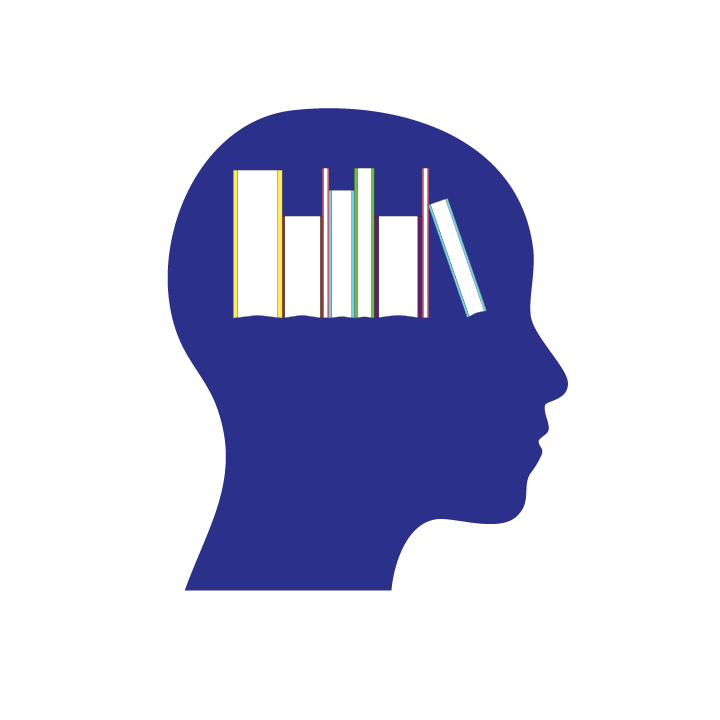
What is the Honey browser extension controversy? Details surrounding alleged scam explored as PayPal comes under fire Sportskeeda
source

What does “Love Actually” actually tell us about our relationships, and how to use questions — and … [+]
“A two-hour whirlwind of improbable, questionable and downright daft scenes of love, propped up by a star-studded cast.” That’s how the BBC described “Love Actually” at the film’s 20th anniversary last year.
The Christmas classic has been critized for fat-shaming and lack of diversity, and, prompted by his own daughter, the director, Richard Curtis, has said that he feels “stupid and wrong” about certain elements of his movies.
But maybe this questionable love story with questionable characters making questionable decisions is just what we need to up our questioning game?
“Love Actually” is often described as a rom-com that follows the lives of eight different couples as they deal with their love lives a month before Christmas in London, England. But there is more to “Love Actually” than romantic relationships.
The movie also shines a warm and loving light on, 1) the relationship between strangers, 2) working relationships, including the relationship between leaders and employees, 3) the relationship between (step) parents and their kids, and even 4) the relationship we have with ourselves — yes, I am thinking of the self-encouraging declaration Kris Marshall’s character makes before leaving for the United States: “I’m Colin. God of Sex, I’m just on the wrong continent, that’s all.”
So, what does “Love Actually” actually tell us about our relationships, and how to use questions — and the holidays — to make the most of them?
“Do you love him?” Mark has been observing his best friend dancing with his bride for some time when Sarah asks him this question. The question clearly surprises Mark, so Sarah explains herself by adding:
“I just thought I’d ask the blunt question in case it was the right one, and you needed someone to talk to about it. And no one had ever asked you, so you’d never been able to talk about it even though you might have wanted to.”
When approaching someone we don’t have a close relationship to, we have the opportunity to introduce topics that the people who are close to them would never address. And while the answer might be no — as Mark makes clear — chances are we’ve established a connection with our question that opens up for other questions: “This DJ, what do you reckon?”, Mark asks, “The worst in history?”
The trick to successfully connect with strangers is to be as honest and humble as Sarah is when she says, “I just thought I’d ask the blunt question in case it was the right one.” But it’s also to invest a few minutes reading the room before inviting someone to share. After all, “Do you love him?” probably wouldn’t have occurred to Sarah if she hadn’t spent the previous moment observing Mark observing his best friend dance with the woman they both love.
Is “Love Actually” with its questionable characters making questionable decisions just what we need … [+]
As the newly elected Prime Minister, David is determined not to jeopardize England’s relationship with the United States. So when his staff asks critical questions of the visiting U.S. president, he dismisses them by saying, “Let’s move on, shall we?”
But then the American president makes a move on the new household, Natalie, to whom David is attracted. And it makes David reconsider the nature of the relationship between England and the United States.
So when asked at a press conference if he agrees with the American president that England and the United States have a special relationship, David says: “I love that word, ‘relationship.’ Covers all manners of sins, doesn’t it?”
In “Love Actually”, it is David’s feelings for Natalie that make him find the strength within himself to give his employees, people and country what they need. But of course, the trick to connecting people in the workplace is not to fall in love with your employees. It is to use the critical questions your staff is asking to reconsider if you’re doing what it takes to protect what really matters from all manners of sins.
When Liam Neeson’s character Daniel decides to talk to his stepson about his isolation after his mother’s death, he starts by asking the same kinds of questions that most parents ask — with the same failing luck:
“What’s the problem, Samuel? Is it just mum, or is it something else? Maybe school? Are you being bullied? Or is it something worse? Can you give me any clues at all?”
It’s only when Neeson stops asking questions and his stepson gets a chance to ask a question of his own that the conversation gets going:
Sam: “You really want to know?”
Daniel: “I really want to know.”
Sam: “Even though you won’t be able to do anything to help?”
Daniel: “Even if that’s the case, yeah.”
Sam: “The truth is, actually, I’m in love.”
Daniel: “I’m a little relieved.”
Sam: “Why?”
Daniel: “Well, because I thought it would be something worse.”
Sam: “Worse than the total agony of being in love?”
Daniel: “Um. No, you’re right. Yeah, total agony.”
The trick to successfully connect across generations is to be okay with not knowing what to ask, not being able to do anything, and not having a plan for how to help. The second, Daniel is okay with that, he is also ready to figure things out along the way.
And, most importantly, he is ready to do so in the company of Sam rather than on his behalf. Which is brilliantly illustrated by the roles being reversed so that it’s now Sam asking all the questions. Daniel ends the Titanic scene by jokingly saying, “Basically, you’re fucked, aren’t you?”, making it clear that when it comes to love — and life — we’re all in the same sinking boat as “Kate and Leo.”
“I just worked out why I can never find true love,” Colin says to his friend. “Why is that?” his friend asks. And then Colin shares his theory about just being on the wrong continent. “I should just go to America,” he concludes. “I would get a girlfriend there instantly.”
When Colin asks his friend what he thinks about his plan, he says, “I think it’s crap, Colin.” But that doesn’t stop Colin. He responds, “No, that’s where you’re wrong. American girls would seriously dig me with my cute British accent.”
“You don’t have a cute British accent,” his friends objects. But Colin insists, “Yes, I do. I’m going to America.” Even when his friends says, “Colin, you’re a lonely, ugly arsehole, and you must accept it,” Colin persists, “Never.”
The trick to successfully connecting with ourselves is to ask our own questions about who we are and what we need to do to succeed. And then owning our own answers. No matter how much his friend insists that he is ugly and stupid, Colin does not give in: “No, I’m wise. Stateside I am Prince William without the weird family.”
“Love Actually” reminds us that Colin, Sam, Daniel, David, Natalie, Mark, Sarah and all the other questionable characters are right. We are all very lovable. Sometimes we’re just on the wrong continent. And then it’s good to know that our opportunity to bring ourselves and our relationships to a better place is just a question away.
One Community. Many Voices. Create a free account to share your thoughts.
Our community is about connecting people through open and thoughtful conversations. We want our readers to share their views and exchange ideas and facts in a safe space.
In order to do so, please follow the posting rules in our site’s Terms of Service. We’ve summarized some of those key rules below. Simply put, keep it civil.
Your post will be rejected if we notice that it seems to contain:
User accounts will be blocked if we notice or believe that users are engaged in:
So, how can you be a power user?
Thanks for reading our community guidelines. Please read the full list of posting rules found in our site’s Terms of Service.

Berberine, a plant compound traditionally used in herbal medicine, is today commonly stocked on the shelves of health food stores and pharmacies as a supplement.
Berberine supplements gained rapid popularity in 2023, with Google searches for berberine reaching an all time high in late June of last year. A quick search of berberine on TikTok reveals countless videos discussing the supplement’s weight loss potential — with some going as far as to claim berberine to be “nature’s Ozempic.”
Beyond weight loss, berberine also has a few other possible, intriguing benefits. Recent research has investigated berberine’s role in supporting heart health and lowering blood sugar levels, per Healthline.
How do berberine supplements hold up against prescription medication? Here’s what experts have to say.
Berberine is a chemical compound derived from plants like tree turmeric, barberry, goldenseal, goldenthread — all of which have historically played an important role in Chinese and Ayurvedic medicine.
Holiday deals: Shop this season’s top products and sales curated by our editors.
Berberine offers many potential benefits, from weight loss support to blood sugar regulation, says Alma Simmons, a registered dietitian nutritionist at The Ohio State University Wexner Medical Center.
On the cellular level, berberine supports a number of functions, says Simmons. “One of the main functions is activating an important enzyme called AMPK, which regulates metabolism,” she explains. “It can also enhance the body’s ability to respond to insulin, helping cells absorb glucose more efficiently.”
Berberine has potential benefits for heart health, such as lowering triglycerides (fat in the blood), total and LDL cholesterol, and systolic blood pressure, says Dr. Lona Sandon, PhD, RDN, LD, a registered dietitian nutritionist and associate professor of clinical nutrition at UT Southwestern. A review that considered berberine’s effects on heart health found some studies supporting this claim, but due high risk of bias, the researchers recommended more clinical trials be performed.
Does berberine offer a natural alternative to medications like Ozempic, as many users on social media claim? “Berberine has shown to help with weight loss, but in comparison to Ozempic, they work through different pathways,” says Brian Lee, a pharmacist at UCLA Health.
Ozempic and Wegovy are brand medications of the same generic name: semaglutide. They are prescription GLP-1 agonists that promote weight loss by slowing digestion and reducing appetite, says Lee. Both medications have undergone testing and received approval by the U.S. Food & Drug Administration — Wegovy for targeting weight loss, and Ozempic for treating type 2 diabetes. Studies have proven semaglutide has positive weight loss effects.
Berberine supplements, on the other hand, activate AMPK enzymes in your body, which work to regulate metabolism (offering potential benefits for weight loss), says Lee. When it comes to studies measuring berberine’s effect on losing weight, “existing studies do not include weight loss as an end point,” says Sandon. “The studies generally speculate on the potential for weight loss benefits.” According to the National Center for Complementary and Integrative Health, there are some studies that support berberine’s weight loss potential, but others had inconclusive outcomes.
So, if you’re comparing medications like Ozempic or Wegovy side by side to an herbal supplement like berberine, “there is more proven data with GLP-1 agonists for weight loss as it is FDA-approved,” says Lee. If you are considering taking berberine supplements for weight loss, consult your healthcare provider or pharmacist first, he underscores.
It is not recommended for young children, or people who are pregnant or nursing, to take berberine supplements, Simmons says. There are also a few medications that berberine interacts with (such as diabetes, blood pressure and antiseizure medications), which is why it’s always important to speak with your healthcare provider before taking any kind of herbal supplement, says Lee.
More:Do biotin supplements actually help with hair growth? Experts weigh in.
If you’re in the clear to take berberine, there are a few potential side effects to consider. Berberine can upset your gastrointestinal system, causing symptoms like: nausea, diarrhea, constipation, gas and abdominal pain, Simmons says. It’s also possible that taking berberine can increase your bilirubin levels, blood sugar levels and blood pressure, she adds.
Finally, “it is always important to remember that supplements do not undergo the same safety and efficacy testing as prescription medications,” says Sandon. “If you choose to take a supplement, stick to a well-known brand and look for third-party testing.”

Philosopher George Santayana once said, “Those who cannot remember the past are condemned to repeat it.” With that being said, preserving and saving as much as we can will improve society as a whole – internet archives play an important role in this sentiment.
Last month, the Internet Archive, a non-profit organization, lost a major appeal and court battle after the U.S. Court of Appeals for the Second Circuit ruled against the organization in a case related to the digitization of books.
The lawsuit in question arose after publishers caught onto the Internet Archive’s National Emergency Library (NEL) program which came about after mass library closures during the COVID-19 pandemic.
With an unfortunate rise in textbook costs, book costs and rising prices as a whole, this court decision impacts everyone’s access to information. In particular, NEL allowed students to find textbooks and other literature at reduced, or no costs. Now, many disadvantaged students will have little to no help finding resources essential to their academic success.
Though the plaintiffs in the case argued that their copyright was being infringed upon, it should be noted that the Internet Archive, through its online lending system, only gave out the same amount of digital copies of its books as it had printed copies. By giving out the limited supplies of books for free NEL essentially functioned as a digital library, not the pirating scheme the court made it out to be.
Strangely enough, one of the books forcibly removed from the archive is George Orwell’s “1984.” Removing a piece of literature that is literally about erasing knowledge, is horrendous.
Likewise, another important topic regarding the internet archives, is that it is a free way for one to see how the internet has changed over the years. This is because the internet archive has saved nearly 900 billion web pages, many dating from the very early days of the web. These webpages can be viewed through the “Wayback Machine,” another program of the Internet Archives.
The founder of the Internet Archive, Brewster Kahle, is an archivist, not just of the internet. In a similar way to the Svalbard Global Seed Vault, Khale has meticulously archived over 500,000 books. He believes in the importance of people’s access to information.
Saving media of any type is important, in the same way, that our country saves our founding documents, the Declaration of Independence and the Constitution. Saving our founding documents is clearly important, but saving all the information generated in this country is just as important —- the information we generate constitutes our nation’s identity.
With these recent legal cases, the future of digital lending and archives will be in the air, and as such, many people around the country will lack access to not just information that interests them but important information as well.
Your email address will not be published.
Terry S Marrlett • Oct 25, 2024 at 12:31 am
I like the Internet Archive. They, usually have what you want. I have many apts for books but they usually don’t have what I want. Lots of time wasted looking thru these apps. Frustrating, the time wasted when I could be reading.
Sunnysideup12 • Oct 24, 2024 at 4:46 pm
Nice write up of the internet archive William:)

Bonterra Grants Security-Based Compensation Yahoo Finance
source

President Trump and his VP Vance will not forget their promises to ‘honestly and aggressively attack universities’.
Rashid Khalidi, America’s foremost scholar on Palestine, best described the sorry state of higher education in the United States today in a recent interview.
Explaining his decision to retire from his position as Edward Said chair of modern Arab history at Columbia University, he said, “I didn’t want to be a cog in that machine any more.
“For some time now, I have been both disgusted and horrified by the way higher education has developed into a cash register – essentially a money-making, MBA, lawyer-run, hedge fund-cum-real estate operation, with a minor sideline in education, where money has determined everything, where respect for pedagogy is at a minimum”.
Regrettably, the situation that pushed Khalidi into what many see as a much too early retirement is likely to get much worse in the near future.
President-elect Donald Trump has promised to launch an all-out attack on American universities as soon as he returns to the White House.
On the campaign trail, Trump cited the rising tuition fees at colleges and universities. But UPenn-educated Trump placed the blame on “radical Left accreditors” who had allowed universities to be “dominated by Marxist Maniacs and lunatics”. His running mate, Yale University graduate JD Vance, meanwhile, called university professors the “enemy” and has pledged to “honestly and aggressively attack universities”.
The broad strokes of what this presidency plans to achieve in higher education are already laid out in the Heritage Foundation’s blueprint for a conservative takeover of the state and all its institutions, Project 2025. The project calls for the dismantling of all diversity, equality and inclusion (DEI) initiatives, and the rejection and removal of “gender ideology” and critical race theory from all teaching material. It underlines the need to prohibit accreditors from requiring educational institutions to adopt DEI policies. It insists on the need to protect faith-based institutions from accreditation agencies’ standards and criteria that they believe “undermine religious beliefs”. Project 2025 also calls for an end to loan forgiveness programs and, eventually, the closing of the Department of Education.
Trump may not be able to achieve all this during his upcoming term. But some of his stated plans for higher education are well within reach and will likely be implemented in some form or other within the next year.
Trump has promised, for example, to “fire radical left accreditors” and “Marxist diversity, equity, and inclusion bureaucrats” and replace them with those committed to upholding a new set of standards, which include “defending the American tradition and Western civilization”. While he will likely not be able to change the way higher education accreditation is done in the US in the short term, he could easily create an environment, and pass regulation, that would pressure institutions to move away from DEI initiatives.
To the detriment of minority and marginalised communities’ access to higher education, Trump could easily weaponise the Department of Justice and federal civil rights laws to target institutions that continue with DEI efforts and tax endowment. He could also withhold federal funding to “force ideological conformity and promote conservative program preferences” at US universities. This would include forcing university leaders to crack down on Palestine solidarity activists or, as Trump puts it, “pro-Hamas radicals” to make college campuses “safe and patriotic again”.
Title IX, the federal law banning sex discrimination in schools, will likely be in the eye of the storm as well. Biden-era expansion of the definition of the scope of sex discrimination to include discrimination based on sexual orientation has irked the conservatives. Therefore, the incoming Trump administration can be expected to remove existing protections for LGBTQ+ students and staff at federally funded colleges. Under Title IX, the Biden administration had also boosted “safeguards for victims of campus sexual assault” by expanding the definition of sexual harassment and ending the requirement of live hearings Trump introduced during his first term. Trump is now expected to revert these changes by “tightening the definition of sexual harassment, raising the standard of proof for allegations and [once again] allowing live hearings”.
Access to higher education will also be under attack under Trump. He has publicly deemed federal loan forgiveness programs, and programs aimed at keeping monthly loan payments low and reducing the time it takes to pay off loans as “unlawful and unfair”. His administration is expected to scrap these. Of course, this will mean that millions of low-income and middle-income students would be unable to afford higher education.
Trump’s immigration policies and mass deportation plans will also have an effect on higher education. Currently, there are 408,000 undocumented students in higher education institutions in the US. Many states provide these students access to in-state tuition and state financial aid. Only three states prevent undocumented migrants from accessing public colleges. Under Trump, many more public institutions may feel compelled to – or outright be forced to – do the same. Trump’s incoming Education Secretary, former World Wrestling Entertainment (WWE) CEO and passionate anti-DEI advocate Linda McMahon, will undoubtedly work hard to turn Trump’s grim vision for American higher education into reality.
Some have pledged to push back.
In August, responding to JD Vance’s promise to “aggressively attack universities in this country” if elected into office, American Association of University Professors (AAUP) President Todd Wilson said, “We are in a crucial moment that will decide the future of higher education for decades to come. Colleges and universities are the bedrock of American democracy and the engine of social mobility, innovation, and progress. We can’t allow fascists to strip it away. Now is the time to fight.”
After the elections, Wilson urged institutions, faculty, staff and students to organise, arguing that the crisis in the sector, with dwindling public funding, rising student debt and increasing attacks on academic freedom, “will only be intensified” under Trump 2.0.
Others, however, appear to perceive the Trump agenda for higher education as the will of the American people, and seem willing to reach a compromise with an administration openly voicing its desire to reshape the entire sector to fall in line with its ideological preferences.
For example, in a statement after the elections defending DEI efforts and academic freedom at US universities, president of Wesleyan University Michael S Roth also suggested that universities “need to be willing to listen” to the point of view of Trump/Vance as millions of Americans had “made their voices heard with their votes [for them]”. Meanwhile, the Western Association of Schools and Colleges (WASC) – one of the seven nonprofit accrediting groups in the US that oversees 170 colleges in Hawaii and California – has already proposed the removal of “diversity, equality and inclusion” from its accreditation standards. PEN America expressed its concerns regarding the timing of this measure, adding that doing so “in the face of an incoming president who has threatened to ‘fire the accreditors’ … cannot help but create the perception that WASC is bowing to political pressure”.
That certain leaders and institutions of American higher education appear to be bowing to Trump even before he officially moves back into the White House should not surprise anyone. Higher education has always been a tool of American soft power, and its institutions have been eagerly serving the agenda of the state – whatever this agenda may be – since their very inception. Under Trump, America is poised to reposition itself in the world and restructure its internal dynamics. The incoming administration has made it clear that these grand alterations to “make America great again” will require a complete revamp of the education system. American universities may not have a choice but to accept their fate and adapt.
The views expressed in this article are the author’s own and do not necessarily reflect Al Jazeera’s editorial stance.
Follow Al Jazeera English:

Mega Millions Jackpot Nearing a Billion Dollars
Jds 12-23-2024
The Mega Millions jackpot has rolled over to an estimated $944M after no one matched all six numbers in Friday night’s drawing.
The next drawing is Tuesday night.
The cash option for a single winner is an estimated $429.4M.
Meanwhile, lottery officials say there were five one-million-dollar winners who matched five of the six numbers in Friday night’s drawing, two of them in Indiana.
You must be logged in to post a comment.
This site is protected by reCAPTCHA and the Google Privacy Policy and Terms of Service apply.

Google LLC has proposed imposing restrictions on its search partnerships to resolve antitrust violations in its search business. This proposal is an alternative to the U.S. Department of Justice (DOJ) proposal to sell the Chrome browser.
Lee-Anne Mulholland, Vice President of Regulatory Affairs at Google, explained the proposal Friday. It followed a U.S. District Court ruling in August, which ruled that Google has an illegal monopoly on search engines and search advertising.
Last month, the DOJ and a group of states that brought the case proposed forcing Google to sell the Chrome browser. They also want Google to stop exclusive search agreements with companies such as Apple and to open its search results to competing search engines. In addition, they are demanding that Google spin off its Android operating system.
Mulholland criticized the DOJ’s proposal as “interference” beyond the court’s ruling. She argued that the proposal would harm consumers and undermine the U.S. technological edge because it would force Google to share user data with competitors. This, she says, would limit Google’s ability to innovate and improve search algorithms.
In her counterproposal, Mulholland suggests that Google should be allowed to retain partnerships such as with Apple, but on a non-exclusive basis. Also, Android manufacturers should be given more flexibility to pre-install multiple search engines, making Google stop mandating the installation of apps such as Google Search and Chrome.
Competing search engines such as Bing (Microsoft), DuckDuckGo and Qwant would benefit greatly from a possible sale of Chrome. However, how any breakup would play out is still unclear.
Judge Amit Mehta has scheduled an April hearing where both sides may present their proposals. A final decision is expected in August. Meanwhile, Google has announced it will appeal the original ruling, which could potentially delay the resolution for years.
Also read: U.S. DOJ is gunning for Google: what would a breakup mean?
Google / Google Chrome / search engines
"*" indicates required fields
According to Broadcom CEO Hock Tan, big tech companies’ spending fren…
Customers know they have to do something with AI. But what exactly? T…
Arm CEO Rene Haas on Monday downplayed the company’s ambitions to bec…
Salesforce just made Tableau Pulse available to the general public. T…
Qualcomm’s central processors are properly licensed under an agreement with Arm. This ruled the jury in a tri…
Italy’s privacy regulator is fining OpenAI 15 million euros. The ChatGPT maker has been found guilty of proce…
Apple has criticized Meta’s repeated requests for access to its software tools. Privacy and security risks, i…
Discover the essential strategies and imperatives to create a data an…
Some companies thrive in times of external uncertainty. They know how…
The IT department is currently under great pressure, partly because o…
As the software development life cycle becomes ever more complex and …
Techzine focusses on IT professionals and business decision makers by publishing the latest IT news and background stories. The goal is to help IT professionals get acquainted with new innovative products and services, but also to offer in-depth information to help them understand products and services better.
© 2024 Dolphin Publications B.V.
All rights reserved.